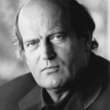The dark heart of Italy
Description
More Details
9780865477001
Also in this Series
Published Reviews
Booklist Review
While Renaissance art and Roman ruins make up the typical Italian tourist itinerary, there exists beneath the surface a richer, more complicated Italy, marked by paranoia, an obsession with aesthetics, and yet an astonishing warmth and benevolence. In fact, it's these contrasts that make Italy all the more irresistible. Jones immigrated to Italy from England in the late 1990s and spent four years traveling the country. His book became a national best-seller in England in 2003 and is the top-selling foreign-language title in Italian retail history. In it, he recounts his efforts to learn the Italian language, probes the Vatican's ties to Italian politics, explores the nation's infatuation with soccer, and interviews jailed onetime leftist leader Adriano Sofri. Threading it all is Silvio Berlusconi, the most unconventional and controversial political leader on the world stage, who was elected prime minister in 2001 in a landslide and whose business interests stretch from banking to media to sports; in many ways, Jones argues, Berlusconi is Italy. Jones' wonderfully sharp eye for the idiosyncrasies of Italian society is apparent here, as is his love for the Italian people. --Andy Boynton Copyright 2004 Booklist
Publisher's Weekly Review
With his first book, Jones must now be admitted to the company of writers such as Alexander Stille and Tim Parks who seem to understand Italy and the Italians better than the natives do themselves. Jones excels at writing about the passions aroused on the soccer field and the dirty machinations in the club offices in an entertaining chapter entitled "Penalties and Impunity." He realizes, though, that soccer is just a manifestation of a deeper, lurking cancer: Italy's dismal mediacracy. It all began in the wake of "Tangentopoli," the massive corruption scandal in the early 1990s that brought down a regime that included the eternally powerful Christian Democrats and their partners in a Faustian pact, the Socialists. Into this political vacuum stepped the irrepressible owner of the country's most successful soccer club, A.C. Milan, Silvio Berlusconi. He built a media empire that now touches every aspect of daily life in Italy; his presence hovers over Italians much as Big Brother hovers over 1984 and his visage looms over a typical Italian town on the book's cover. But Berlusconi, writes Jones, although on the political scene for a decade, is a relatively recent chapter in the sordid history of Italy. Jones does a fine job of explicating (as much as it can be explicated) the murky history of neo-fascist, right-wing and Mafia intrigues against the Italian Republic after WWII. On a lighter note, he playfully dissects the Italians' obsession with beauty and eroticism. Jones, who had been on the staff of the London Review of Books, moved to Parma in 1999 and has developed a sincere and profound love of Italy and the Italians. Agent, Georgina Capel. (June) (c) Copyright PWxyz, LLC. All rights reserved
Library Journal Review
Maybe it's best that tourists see Italy as a spectacularly beautiful country, filled with art treasures, walled cities, and some of the best scenery anywhere in the world. If they looked deeper into this remarkable country, they might see what Jones, who has lived there since 1999, has discovered about the "real" Italy. It will shock most readers that the most beautiful country in Europe is also its most corrupt; people disobey laws with impunity, politicians are sold to the highest bidder, World War II Fascist leaders still hold positions of power, and religion has an iron grip on society. There is little national patriotism in Italy; its old city-states may be gone geographically, but they still exist in the hearts of their residents. This book deserves to be read by anyone attempting to dig beneath the surface of what makes modern Italy run. Jones has done an excellent job in showing us that Italy is a country more pleasing for its aesthetics than for its ethics. Recommended for public and college libraries.-Joseph L. Carlson, Allan Hancock Coll., CA (c) Copyright 2010. Library Journals LLC, a wholly owned subsidiary of Media Source, Inc. No redistribution permitted.
Kirkus Book Review
Expatriate's debut memoir, in which Italian culture postures, disappoints, and still makes life more exciting than anywhere else. Sound familiar? This belongs to the venerable genre featuring a protagonist who goes to live in a foreign land, learns the language, delves into society's seamy underside, and exposes the machinations of a corrupt power structure while maintaining a parallel discourse on the physical and cultural charms that make the country, in the end, simply irresistible. Just as fellow Brit Peter Robb does in A Death in Brazil (p. 262), Jones performs a literary autopsy on Italy while bringing it back to life. To hear him tell it, while half of all Italians are in its shops and streets, the other half are queued at the post office to apply for one of the endless list of permits the country's "clerical class" has imposed on its citizenry. Italian courts, working from a base of more law than anywhere in Europe, but without habeas corpus, tend to produce paperwork in the absence of clear convictions or acquittals, as those atop the power pyramids (including the Mafia) inevitably tamper with magistrates, juries, and whatever witnesses remain alive. Italians complain about it and suffer (insert here a mighty shrug in which the arms may resemble bat's wings) but, Jones explains, this is a country where patriotism goes first to one's city-state or district; decades of shocking factional terror following WWII were, in effect, a civil war that, like a lot of other things in Italy, never quite got finished. Enter the oligarchs, cut from the same pattern as current PM Silvio Berlusconi: owners of industries, soccer teams, newspapers or TV stations, and criminal records who are nonetheless able to vault in and out of government at will. "Here," Jones notes, "conflict of interest is a positive thing." Engaging scenes from a country trapped in a rather nice brothel. Copyright ©Kirkus Reviews, used with permission.
Booklist Reviews
/*Starred Review*/ While Renaissance art and Roman ruins make up the typical Italian tourist itinerary, there exists beneath the surface a richer, more complicated Italy, marked by paranoia, an obsession with aesthetics, and yet an astonishing warmth and benevolence. In fact, it's these contrasts that make Italy all the more irresistible. Jones immigrated to Italy from England in the late 1990s and spent four years traveling the country. His book became a national best-seller in England in 2003 and is the top-selling foreign-language title in Italian retail history. In it, he recounts his efforts to learn the Italian language, probes the Vatican's ties to Italian politics, explores the nation's infatuation with soccer, and interviews jailed onetime leftist leader Adriano Sofri. Threading it all is Silvio Berlusconi, "the most unconventional and controversial political leader on the world stage," who was elected prime minister in 2001 in a landslide and whose business interests stretch from banking to media to sports; in many ways, Jones argues, Berlusconi is Italy. Jones' wonderfully sharp eye for the idiosyncrasies of Italian society is apparent here, as is his love for the Italian people. ((Reviewed June 1 & 15, 2004)) Copyright 2004 Booklist Reviews.
Library Journal Reviews
Maybe it's best that tourists see Italy as a spectacularly beautiful country, filled with art treasures, walled cities, and some of the best scenery anywhere in the world. If they looked deeper into this remarkable country, they might see what Jones, who has lived there since 1999, has discovered about the "real" Italy. It will shock most readers that the most beautiful country in Europe is also its most corrupt; people disobey laws with impunity, politicians are sold to the highest bidder, World War II Fascist leaders still hold positions of power, and religion has an iron grip on society. There is little national patriotism in Italy; its old city-states may be gone geographically, but they still exist in the hearts of their residents. This book deserves to be read by anyone attempting to dig beneath the surface of what makes modern Italy run. Jones has done an excellent job in showing us that Italy is a country more pleasing for its aesthetics than for its ethics. Recommended for public and college libraries.-Joseph L. Carlson, Allan Hancock Coll., CA Copyright 2004 Reed Business Information.
Library Journal Reviews
Tobias Jones left his native England to live in Italy in the 1990s. His The Dark Heart of Italy: An Incisive Portrait of Europe's Most Beautiful, Most Disconcerting Country (North Point: Farrar. 2004. ISBN 0-86547-700-0. $24) portrays an Italy that is far more complex than is usually depicted in guidebooks or travel essays. Copyright 2004 Reed Business Information.
Publishers Weekly Reviews
With his first book, Jones must now be admitted to the company of writers such as Alexander Stille and Tim Parks who seem to understand Italy and the Italians better than the natives do themselves. Jones excels at writing about the passions aroused on the soccer field and the dirty machinations in the club offices in an entertaining chapter entitled "Penalties and Impunity." He realizes, though, that soccer is just a manifestation of a deeper, lurking cancer: Italy's dismal mediacracy. It all began in the wake of "Tangentopoli," the massive corruption scandal in the early 1990s that brought down a regime that included the eternally powerful Christian Democrats and their partners in a Faustian pact, the Socialists. Into this political vacuum stepped the irrepressible owner of the country's most successful soccer club, A.C. Milan, Silvio Berlusconi. He built a media empire that now touches every aspect of daily life in Italy; his presence hovers over Italians much as Big Brother hovers over 1984 and his visage looms over a typical Italian town on the book's cover. But Berlusconi, writes Jones, although on the political scene for a decade, is a relatively recent chapter in the sordid history of Italy. Jones does a fine job of explicating (as much as it can be explicated) the murky history of neo-fascist, right-wing and Mafia intrigues against the Italian Republic after WWII. On a lighter note, he playfully dissects the Italians' obsession with beauty and eroticism. Jones, who had been on the staff of the London Review of Books, moved to Parma in 1999 and has developed a sincere and profound love of Italy and the Italians. Agent, Georgina Capel. (June) Copyright 2004 Reed Business Information.




























